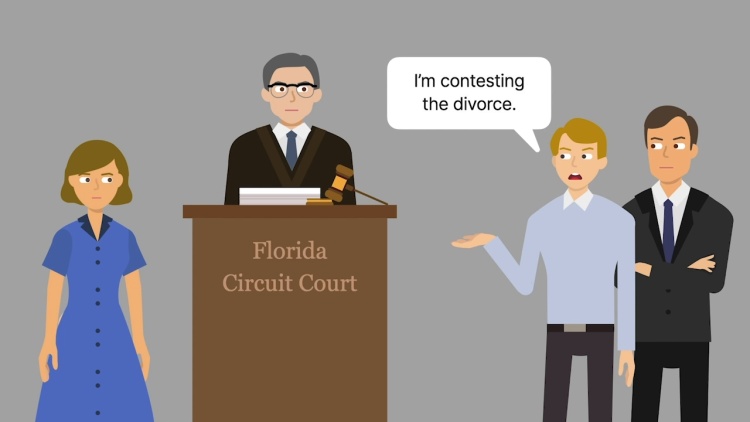Sherrer v. Sherrer
United States Supreme Court
334 U.S. 343 (1948)
- Written by Craig Conway, LLM
Facts
Edward Sherrer (plaintiff) and Margaret Sherrer (defendant) lived in Massachusetts with their two children. In March 1944, Mrs. Sherrer told her husband that she wished to go to Florida with the children for a month. Prior to leaving, she conferred with an attorney about divorce. On April 3, Mrs. Sherrer departed for Florida. Approximately one week later, an acquaintance of hers named Phelps met her in Florida. On April 20, Mrs. Sherrer informed her husband that she did not desire to return to him. On July 6, Mrs. Sherrer filed for divorce in a Florida court. Florida law allowed divorce proceedings to be commenced after 90 days’ bona fide residence. Mrs. Sherrer had been in Florida 93 days. Mr. Sherrer retained a Florida attorney who entered a general appearance in the matter. Mr. Sherrer answered his wife’s complaint, denying her allegations regarding Florida residency. In November, prior to the court hearing date, Mr. Sherrer traveled to Florida. He and Mrs. Sherrer entered into a stipulation regarding custody of their children. At the court hearing, Mr. Sherrer’s attorney did not cross-examine Mrs. Sherrer or present any evidence regarding jurisdiction. A divorce decree was entered on November 29. On December 1, Mrs. Sherrer married Phelps. In February 1945, Mrs. Sherrer and Phelps traveled back to Massachusetts from Florida. In June 1945, Mr. Sherrer filed a petition in a Massachusetts court against Mrs. Sherrer for desertion. In favor of Mr. Sherrer, the court did not recognize the Florida divorce decree. It found that Mrs. Sherrer had not intended to move to Florida permanently so as to establish bona fide residency. The Supreme Judicial Court of Massachusetts affirmed. Mrs. Sherrer petitioned the United States Supreme Court for certiorari.
Rule of Law
Issue
Holding and Reasoning (Vinson, J.)
Dissent (Frankfurter, J.)
What to do next…
Here's why 907,000 law students have relied on our case briefs:
- Written by law professors and practitioners, not other law students. 47,100 briefs, keyed to 996 casebooks. Top-notch customer support.
- The right amount of information, includes the facts, issues, rule of law, holding and reasoning, and any concurrences and dissents.
- Access in your classes, works on your mobile and tablet. Massive library of related video lessons and high quality multiple-choice questions.
- Easy to use, uniform format for every case brief. Written in plain English, not in legalese. Our briefs summarize and simplify; they don’t just repeat the court’s language.






